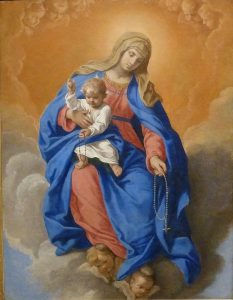
“More smiling, less worrying. More compassion, less judgment. More blessed, less stressed. More love, less hate.”
― Roy T. Bennett, The Light in the Heart
“多的微笑,少的担心。多的同情心,少的判断。多祝福,少压力。多爱少恨。”
Inspriration from all walks of life


“More smiling, less worrying. More compassion, less judgment. More blessed, less stressed. More love, less hate.”
― Roy T. Bennett, The Light in the Heart
“多的微笑,少的担心。多的同情心,少的判断。多祝福,少压力。多爱少恨。”

善良无需考证
巴西著名导演沃尔特·塞勒斯正在筹备自己的新电影,一天,正为此一筹莫展的沃尔特到城市西郊办事,在火车站前的广场上遇到了一个十多岁的擦鞋小男孩。小男孩问道:「先生,您需要擦鞋吗?」沃尔特低头看了看自己脚上刚刚擦过不久的皮鞋,摇摇头拒绝了。
就在沃尔特转身走出十几步之际,忽然见到那个小男孩红著脸追上来,眼中满是祈求:「先生,我整整一天都没吃东西了,您能借给我几个钱吗?我从明天开始就多多努力擦鞋,保证一周后把钱还给您!」
沃尔特看着面前这个衣衫褴褛、面黄肌瘦的小男孩,不由的动了恻隐之心,就掏出几枚硬币递到小男孩手里。小男孩感激的道了一声「谢谢」后,一溜烟就跑得没影了。沃尔特摇了摇头,因为这样的街头小骗子他已经见得太多了。
半个月后,忙着筹备新电影的沃尔特早已将借钱给小男孩的事忘得一干二净了。不料,就在他又一次经过西郊火车站时,突然看到一个瘦小的身影离的老远就向他招手喊道:「先生,请等一等!」等到对方满头大汗的跑过来把几枚硬币交给他时,沃尔特才认出这是上次向他借钱的那个擦鞋小男孩。小男孩气喘吁吁的说:「先生,我在这里等您很久了,今天总算把钱还给您了!」沃尔特握著自己手里被汗水濡湿的硬币,心头陡然升起一股暖流。
沃尔特不由地仔细端详起面前的小男孩,突然,他发现这个小男孩其实很符合自己脑海中构想的主人公形象。于是,沃尔特把几枚硬币塞到小男孩衣兜里:「这点零钱是我诚心诚意给你的,就不用还了。」沃尔特对他神秘的一笑,又说道,「明天你到市中心的影业公司导演办公室来找我,我会给你一个大大的惊喜。」
第二天一大早,门卫就告诉沃尔特,说外面来了一大群孩子。他诧异的出去一看,就见那个小男孩兴奋的跑过来,一脸天真的说:「先生,这些孩子都是同我一样没有父母的流浪儿,听说你有惊喜给我,我就把他们都带来了,因为,我知道他们也渴望有惊喜!」
沃尔特真没想到这样一个穷困流浪的孩子竟会有一颗如此善良的心!既然人都带来了,沃尔特就让工作人员对这些孩子进行了观察和筛选,最后,工作人员在这些孩子中,找出了几个比小男孩更机灵,更适合出演剧本中的小主人公的人选。
但最终,沃尔特还是选择只把小男孩留下来。他在录用合同的免试原因一栏中只写了这样几个字:你的善良,无需考核!
因为他觉得:在自己面临困境的时候,却依然能把本属于自己一个人的希望,无私的分享给别人的人,最值得拥有人生的惊喜!而这个小男孩就是后来巴西家喻户晓的明星文尼西斯·狄·奥利维拉。 在沃尔特的执导下,文尼西斯在剧中成功地扮演了小男孩主人公的角色,而电影《中央车站》也大获好评,并获得了1999年的奥斯卡金像奖。
若干年后,已成为一家影视文化公司董事长的文尼西斯写了一本自传,叫《我的演艺生涯》。
在书的扉页上面,是沃尔特的亲笔题字:你的善良,无需考核。下面还有一行小字,则是他对文尼西斯的评价:「是善良,曾经让他把机遇让给别的孩子;同样也是善良,让人生的机遇不曾错过他!」。
「欣赏一个人,始于颜值,敬于才华,合于性格,久于善良,终于人 品。
人生就是这样,和漂亮的人在一起,会越来越美;和阳光的人在一起,心里就不会晦暗;和快乐的人在一起,嘴角就常带微笑;和聪明的人在一起,做事就机敏;和大方的人在一起, 处事就不小气;和睿智的人在一起,遇事就不迷茫。
借人之智,修善自己;学最好的别人,做最好的自己!」
(English story from Washington Post, different from Chinese one, good for reading )
ONE morning in late 1996, the Brazilian director Walter Salles was waiting for a flight in Rio de Janeiro when he was approached by a 9-year-old shoeshine boy. At the time, Mr. Salles was preparing to shoot his third feature film, ''Central Station,'' the tale of an older woman and a boy who meet at Rio's train station and then strike out on a journey into the hinterlands to find the boy's father.
Fernanda Montenegro, Brazil's doyenne of stage and film, had agreed to play the woman, Dora, but Mr. Salles had still not found anyone to play Josue, the child. ''In one full year we had tested 1,500 boys,'' he said. ''I was getting desperate.''
The shoeshine boy, Vinicius de Oliveira, had other concerns, however. ''It was raining that day, and I wasn't making any money,'' he recalled, speaking through an interpreter at the Toronto Film Festival. ''I couldn't shine Walter's shoes because he was wearing sneakers, but I asked if he could lend me some money so I could eat and I would pay him back. He told me, 'I'll give you the money to buy a sandwich, but you also have to do a screen test for me.' ''
When Vinicius finally showed up for the test, he brought his friends with him, ''the entire fraternity of shoeshine boys from the airport,'' Mr. Salles said, laughing. He chose Vinicius for the role because, he said, ''I was looking for a boy who knew what the battle for survival was, but who had not lost his innocence in doing so.
''I cannot even say that I found Vinicius. It's more honest to say that he found me.''
The story of how ''Central Station'' was made, over a vast territory, with a small budget and crew and many novice collaborators, embodies the theme of the film itself: the triumph of steadfastness over adversity. Both a portrait of present day Brazil and a two-person drama, ''Central Station,'' which opened on Friday, manages to be intimate and epic, local and universal.
''One day I woke up with this idea of a film about a quest,'' said Mr. Salles, 42. ''It was the search for a father that a kid had never met, the search of an old woman for the feelings that she had lost and the search somehow for a certain country that was not the country I was living in anymore.''
Mr. Salles's work is informed by the search for identity, both on a personal and national level, a concern stemming largely from his own background. Born in Brazil to a banking family, he spent part of his childhood in France and the United States where his father was a diplomat. When he returned to Brazil, he eventually decided to become a documentary filmmaker.
This combination of an outsider's perspective and an insider's understanding has shaped Mr. Salles's work. ''I think the fact that I have been raised in several different countries has given me both a sense of continuous exile and a desire to understand my own culture,'' he said recently in New York, speaking in fluent English.
The dark-haired Mr. Salles, who has kind eyes and a ready laugh, is both warm and disarmingly modest. ''When you come from a privileged part of Brazilian society, as I do, you have to opt either to be part of that culture of indifference or to understand what the country really is,'' he said.
His movie comes at a time when Brazilian cinema is once again flourishing. After a period of forced inactivity in the early 1990's, when the Government of President Fernando Collor de Mello froze individual bank accounts and shut down the state film agency, film production has risen to approximately 40 films a year.
But the reality of everyday life that ''Central Station'' depicts is harsh. In the film, Dora is a bitter woman who makes her living in Rio's Central Station, writing letters for illiterate people. She takes their money but discards the letters. One day she writes a letter for a mother and her little boy (Vinicius de Oliveira). When the mother is killed in an accident outside the station, Dora tries to sell the boy for adoption. Realizing that she has instead sold him to a sinister organization in which he may come to harm, she rescues the boy and the two set out on a bus trip to find his father.
For Mr. Salles, Dora is the epitome of modern Brazil, with its ''culture of cynicism.'' But as Dora grudgingly develops a bond with the boy ''she begins to understand that the boy's route and the boy's ordeal are comparable to her own,'' he said.
The growing friendship between these two -- more comradely than mother-son -- is, for Mr. Salles, a symbol of a Brazil where solidarity and compassion may be buried but are still present. His film is not utopian, but it celebrates the diversity both of the land and of what Mr. Salles calls the ''human geography'' that Dora and Josue encounter on their journey.
When the screenplay of ''Central Station,'' based on an idea of Mr. Salles's and written by Joao Emanuel Carneiro and Marcos Bernstein, won a prize sponsored by the Sundance Institute and the Japan Broadcasting Corporation in early 1996, it attracted the attention of Arthur Cohn, the Swiss independent producer who has won five Academy Awards (one for Vittorio De Sica's ''Garden of the Finzi-Continis'').
LIKE De Sica, Walter's approach is humanistic,'' said Mr. Cohn. ''De Sica taught me that there were four main points to making significant films. One was to cast actors who are right for the part, not just those with big names. Two was to shoot the film on authentic locations. Three was that sex, violence or special effects are not necessary unless they're intrinsic to the story.'' He smiled. ''Four was not to listen to everybody's advice, but to follow your intuition.''
With Mr. Cohn as producer, and with his principal cast finally in place Mr. Salles started the collaborative rehearsal process he had favored with his second film, ''Foreign Land'' (1995). ''It's a work almost like that of theater,'' said Ms. Montenegro, 69, in New York. ''For two months we sat around a table, reading and discussing the script.''
The long preparation allowed Mr. Salles to move quickly and to improvise once filming began in November 1996. During the filming of Ms. Montenegro's scenes in the railroad station, several passersby took her to be an actual letter-writer and asked her to write letters for them, scenes that made it into the movie. In following the journey of Dora and Josue, Mr. Salles had to move his team from Rio to remote regions of northeast Brazil, to the states of Bahia and Pernambuco. ''The transport from one place to another sometimes took three days on dirt roads,'' said Mr. Salles. ''It was like being in a circus for several weeks.''
Nor were conditions easy, due to the extreme heat and the poverty of the villages where Mr. Salles was filming. Yet the welcome that his crew received allowed the unforeseen to occur, as in a scene where Dora and Josue come upon a religious pilgrimage in full swing. Mr. Salles had the actual pilgrims recreate this candlelight vigil.
Mr. Salles is a largely self-taught filmmaker. After studying history and economics in college in Brazil, he attended only one year of film school, at the University of Southern California, before returning to Rio in 1981 to make documentaries.
His move toward feature films was gradual. In 1989, he directed ''Exposure,'' starring Peter Coyote and based on the Brazilian writer Rubem Fonseca's novel ''High Art.'' ''Foreign Land,'' about two young Brazilians bereft in Lisbon, delved into the themes of physical and spiritual voyage and of loss. ''Sometimes I am asked why I was so pessimistic in 'Foreign Land' and why I open the possibility of optimism with 'Central Station,' '' Mr. Salles said. ''But the films portray different moments of Brazilian reality.''
He paused. ''When you see films today, it seems that most of the characters endure a situation they cannot control,'' he said. ''Here I wanted to show that tough as life may be, it can be possible to transcend this initial adversity.''
That hopeful message may explain the widespread appeal of ''Central Station.'' The film has been a big success in Brazil, where it has been seen by more than a million viewers, but it also had positive audience response at the Sundance, Toronto and Berlin film festivals. ''During the screenings we held in Toronto, I saw tears rolling down people's faces,'' said Ramiro Puerta, the programmer for Latin American and Spanish films in Toronto.
As the film opens around the world, Mr. Salles's own life these days resembles a road movie. But even in the wake of ''Central Station's'' success, he has no plans to relocate from Rio -- where he lives in a forested area outside the city with his six large dogs -- or to change his thematic pursuits.
With Daniela Thomas, a co-director of ''Foreign Land,'' Mr. Salles has written and directed a short feature called ''Midnight,'' and he will work again with Arthur Cohn on two films still being written.
Embarking on these projects, Mr. Salles seems to want to explore further the need for connection -- whether between individuals or between peoples -- that ''Central Station'' embraces. '' 'Central Station' is much more about brotherhood than it is about a specific country,'' he said. ''Even as an artist, you need to know that what you do is part of a larger whole. You need to be part of a dialogue.'' He smiled. ''In Brazil, we have this expression: 'One bird alone does not announce the spring.' ''

玫瑰圣母节原为「胜利之母节」,庆祝圣母玫瑰经的胜利和威力。这个节日最早出现在西班牙,一五七一年在抗击异教徒入侵的战争进入决战时刻,教友热诚诵念玫瑰经,十月七日,基督徒军队在助班多大获全胜,教宗比约五世将此胜利之日定为「胜利之母节」,教宗格列高利(额我略)十三世改为「玫瑰节」。一七一八年奥王子欧根(Eugen)又在贝尔格莱德大胜土耳其侵略军,教宗克莱孟十一世明令普世教会庆祝此节日。教宗比约十世将此节日调回原来的十月七日。一九六O年修订此规时,将庆节名称改为「玫瑰圣母节」,梵二新订教会年历时定为纪念日。
弥撒经文主要目的在使信友藉圣母的助佑,特别默想基督一生的事迹,在今世能伴同耶稣分担祂的苦难,来世也能分享祂的喜乐和光荣。福音天使报喜的奇蹟是玫瑰经的开始。从此,圣母与耶稣一生同甘共苦,辅助救赎工程。念玫瑰经就是要我们追随耶稣的一生,同圣母一样,努力参与耶稣的救赎工程。
玫瑰经的起源机械地计算所念经文的遍数的作法,由来已久。古埃及人朝拜太阳神时就曾用过。六世纪开始伊斯兰教徒指切著串珠祷告阿拉真主,而五世纪时我们的圣女彼利日达就用彩色石子,来计算她所念的《天主经》。
教会初期,神职人员和教友都还是承袭古教的传统,祷告时的经文就是一百五十篇《圣咏》,普通教友不懂圣咏的含义,只能阶段地跟着念《天主经》,后来逐渐加入了《圣母经》,但只有前半段,即加俾尔天神的赞颂和圣妇依撒伯尔的贺词:「女人中你最光荣,你怀的孩子也最光荣。」四三一年六月廿二日,一百五十多位主教在小亚细亚的厄弗所举行的大公会议上,宣布了基督信友久已遵奉的玛利亚为天主之母的光辉荣衔和崇高地位。那个晚上,厄弗所的人们万众欢腾,高举火炬,举行盛大游行,高呼:「天主圣母玛利亚!」《圣母经》从而增加了新的内容。后来在欧洲大地瘟疫横行,死伤惨重的严重时刻,教会领导的祈祷完成了《圣母经》的后半段:「天主圣母玛利亚,求你现在和我们临终时,为我们罪人祈求天主!阿们。」
于是,教友们比照神职班诵念的一百五十首《圣咏》,念一百五十遍《圣母经》,中间加念《天主经》和《圣三光荣诵》,这样编成花环、花冠,献给圣母玛利亚。
圣母最早授意念玫瑰经的是圣多明我和加大利纳。当时法、意、西三国,邪说盛行,异端惑众,败坏风化,圣母命他念由《圣母经》组成的「串经」,很快劝化了异端。当时圣多明我用的念珠由一百六十九个珠子组成,含十五瑞玫瑰经。为了简便,现在我们用的念珠是多明我念珠的三分之一,五十九个珠子组成,念法一样。这样看来,玫瑰经在基督徒的祈祷生活中由来已久,源远流长,它圣化了我们的生活,成全了我们的德行,挽救了我们的急难。
圣母的显现
一八五四年教宗钦定圣母无染原罪后四年,一八五八年,圣母在露德前后显现共十八次,给一个农家十四岁的女孩伯尔纳德,每次她都手持念珠在手,和她的小朋友一起诵念,郑重地向世界宣示玫瑰经的可贵。从那时,露德出现了许多神蹟,尤其是治疗方面的。重大疾病的治愈都经过世界上不同信仰和无信仰的高级医疗专家的反复验证,绝非人力所致,显然是神蹟。心灵方面的治疗也是惊人的。六十年后的一九一七年五月十三日,第一次世界大战的第三年,已经牺牲了八十万军民的严重关头,普世教会举行盛大祈祷,祈求世界早日和平的第八天,圣母玛利亚在葡萄牙里斯本首都市区外六十里的花地玛的小镇上,显现给三个孩子,圣母手上也提着一串明亮的念珠。她温柔地说:「不要害怕!我是从天上来的,不会伤害你们。我要你们一连六个月的十三日到这里来。我会告诉你们我是谁。」路济亚惊呼道:「妳从天上来!」圣母说:「是的,你们要念玫瑰经,而且要用心念。」这样圣母从圣母月到玫瑰月,共显现了六次。
至圣玫瑰之后
花地玛圣母在十月十三日最后这一次显现中,大约十万人在场。路济亚受到治安当局的授意,向显现者提出如下的问题:「妳是谁?妳要我做甚么?」
圣母答道:「我是玫瑰之后,我来告诉世人,回头改过,赶快为他们的罪过做补赎求宽赦,不要再得罪上主天主了!因为他们得罪上主天主太多了!他们一定要好好念玫瑰经。」教宗派出调查团进行调查,一九三O年做出了调查报告,认为显现是「值得相信」的。圣教会制定了对花地玛圣母的敬礼,宣布圣母为「至圣玫瑰之后」。修建了花地玛圣母大殿,朝圣者络绎不绝,有增无减,神蹟不断发生。
圣母还嘱咐:「在每端玫瑰经后加念:吾主耶稣,请宽恕我们的罪过,救我们于永火之中,求你把众人的灵魂,特别是那些需要你怜悯的灵魂,领到天国里去。」
综上所述,明白显示,天主之母玛利亚多么喜欢玫瑰经。玫瑰经可以使我们得宠、得助、得赦、得胜、得救!何不热心诵念玫瑰经!
怎样念玫瑰经
玫瑰经是随时随地可以诵念的经文,乘车、旅行、散步、室内、室外、堂内、圣体前都可,而且个人、家庭、集体、千万人的聚会都可以诵念。
诵念开始,先亲苦像,表示敬爱,然后握苦像画十字圣号;念信经,表示坚信圣教道理,念《天主经》和三遍《圣母经》赞美、感谢天主圣三:「天主圣父全能,升你到崇尊之位天主圣子全知,充满你绝圣之灵魂,天主圣神全善,充满你绝圣之灵魂……」求天主圣三增加我们的信、望、爱三德,从而形成玫瑰经美妙的前奏,以下就开始正式的五端玫瑰经。念法大家都知道。默想耶稣和圣母生平的喜乐、哀痛和荣耀的全部奥迹。星期一、六默想欢喜奥迹,星期四默想光明奥迹,星期二、五默想痛苦奥迹,星期三、日默想荣福奥迹。在默想中赞美感谢耶稣和圣母对我们的爱,同时结合自己的实际,在生活中以实际行动,还报耶稣和圣母的爱,发展这个爱,宣传这个爱。
用心念玫瑰经
我们一定记得圣母在花地玛不仅要我们念玫瑰经,而且要好好地用心念!就是要我们全心神进入耶稣和圣母降生救赎我们的生活实际,深入体会,触动我们的情感,感化我们的意志,促进我们的行动,以耶稣和圣母为楷模,为福音作证。
同时也不能忽略《天主经》和《圣母经》这两端我们教会最美妙、最神圣的词章,那无可比拟的力量,一世纪又一世纪在信友中念唱颂扬,具有回天之力,我们要敬重诵念和默想!
圣路易格力诺说:「只要你天天诵念玫瑰经,保你不会失灵魂,为了证明这真理,我愿流血保证。」
有位太太请了一位油漆匠到家里粉刷墙壁,

油漆匠走进门,看到她的丈夫双目失明,顿时流露出怜悯的目光;
可是男主人却非常开朗乐观,所以油漆匠在这家工作的几天里,他们谈得很投契,油漆匠也从来没有提及男主人的生理缺憾。
油漆匠粉刷完墙壁,取出账单递给那位太太,那位太太接过来一看,发现比谈妥的价钱打了一个很大的折扣。
她不解地问油漆匠:「你为甚么少算了这么多?」
油漆匠回答:「跟你先生在一起觉得很快乐,他使我觉得自己的境况还不算最坏,所以减去一部分,算是我对他的一点谢意,【因为他让我把工作看得不会太苦!】
油漆匠对她丈夫的推崇,使这位太太流下了眼泪,
因为,这位慷慨的油漆匠只有一只手!
【人生可能无法改变,但人生观可以改变】
【环境虽然无法改变,但心境可以改变】
虽然无法调整环境来完全适应自己的生活,
【但可以调整态度来适应环境,而态度就会决定命运!】
【知足的人看到的都是穷苦人家的苦】
【不知足的人看到都是富贵人家的乐】
【最大的幸福不是得到,而是感谢】
【最好的财富不是金钱,而是健康】
【最多的自由不是拥有,而是放下!】
朋友,其实我们真的很幸福,
能多给予别人一些,自己也能得到更多的快乐;
我们可能无法为这个世界做什么伟大的事情,
但是【我们可以带着伟大的爱,多做很多小事!】

一个人在一片森林里,看见了一个蝴蝶的虫茧,于是他就坐在边等看蝴蝶怎么破茧而出,几个小时之后,虫茧上出现了一个小洞,蝴蝶拚命努力地挣扎着要从这小洞里出来,可是挣扎很久都出不来,然后所有的挣扎都停止,虫茧里没有了任何的动静。
这个人看到这里,决定要帮帮这个蝴蝶,于是他用刀把虫茧里破开了,让蝴蝶可以很轻易地出来,谁知道,他看到这蝴蝶却有着肥大的身体,小小的翅膀,根本不能飞。这人想继续看看,蝴蝶是不是可以慢慢地身体变小,翅膀慢慢变大,可以飞起来,可惜他期盼的事情没有发生。这只蝴蝶永远只能带着小小的翅膀,用肥胖的身体在地上爬行,无法飞翔了。
这人以为他为蝴蝶破茧而出做了件好事,可惜他不知道自然规律,蝴蝶想要从茧里挣脱出来,这时有一个好听的名字叫「羽化」,刚羽化的蝴蝶挣扎穿过茧洞,对身体拚命进行挤压,身体内的液体就会送到翅膀内,撑开皱皱翅膀,使它变大变强壮,蝴蝶就可以展翅高飞了。
只有从内打破才是新生,不管是蝴蝶破茧而出,还是小鸡破壳而出,都只有靠它们自己经历痛苦的挣扎。而从外打破的不是被淘汰了就是变成了食物。
造物主其实也是公平的,虽然现在人们用各种科技的手段让现实承受的痛苦少一些,孩子出生不再通过产道的挤压,而是通过人为帮助他们降生,但依然改变不过不经历风雨,就无法见到彩虹的事实。
你可以期待在成长的路上有贵人相助,但如果他象那个好心人一样,帮你把困难全都踢开了,你也就变成了那只无法飞翔,只能爬著走的蝴蝶了。
所有的苦难都是破茧而出必经的过程,一步都少不得。
She is like the lady down the road
Or just the woman up the street
Like any mother you may know
To me, she is the one who had it planned
To lead us all to Wonderland
She always wanted us to go
And she said
Don?t ever be lonely
Remember, I'll always care
Wherever you may be
Remember I will be there
And like another lady that we know
She has a smile so bright and sweet
And hair as white as driven snow
Though life is never easy day to day
She has a very special way
To make us smile when we are low
And she says
Don't ever be lonely
Remember, I'll always care
Wherever you may be
Remember I will be there
Don't ever be lonely
Remember, I will be there
I will be there
I will be there